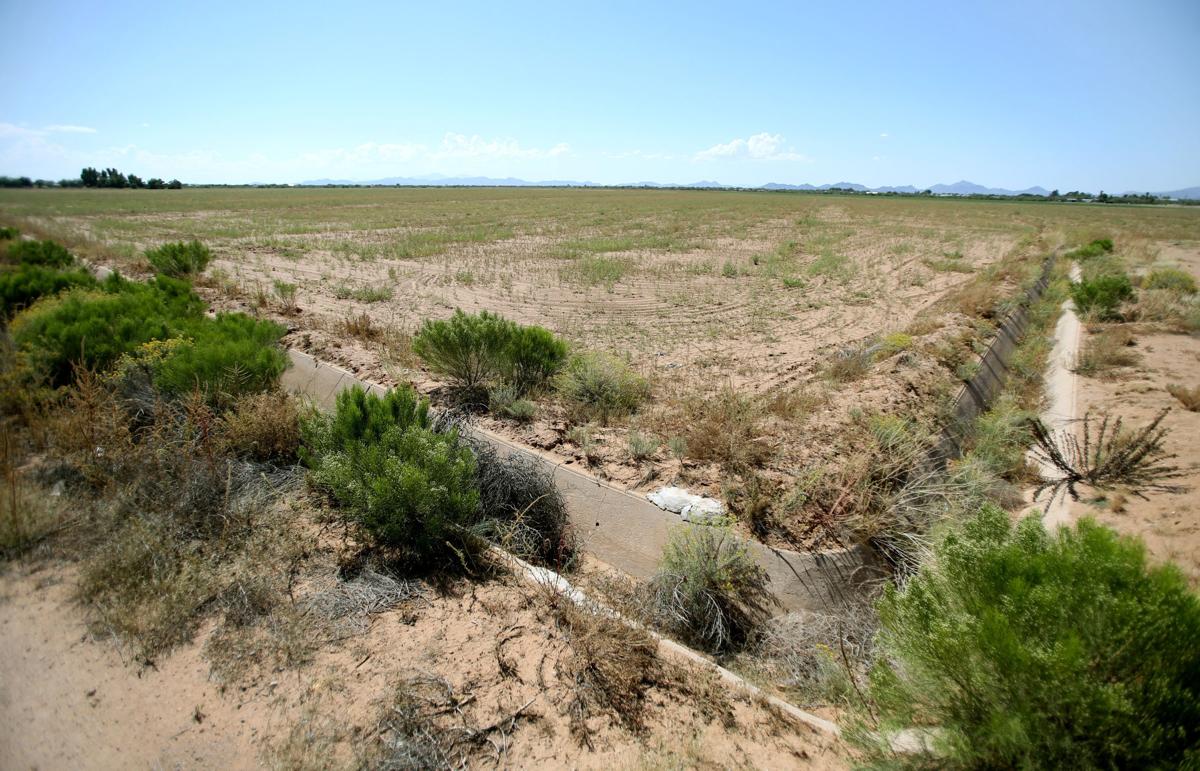The Marana Unified School District board has unanimously approved a property tax arrangement with agribusiness giant Monsanto that will save the company roughly $3.4 million in taxes over 10 years.
The deal, approved in late October, will also give the average district homeowner a small reduction in property taxes, but less of a reduction than could have been the case if another plan was approved.
The vote centered on how to handle property tax impacts if the company is granted a so-called foreign-trade-zone designation, which drops tax burdens significantly.
The Pima County Board of Supervisors is to consider a proposal Tuesday, but that will impact only the three taxes it controls. Other districts, including MUSD, have to come up with their own arrangements.
On Oct. 27, three such proposals from Monsanto were presented to the school board by Superintendent Doug Wilson, according to meeting minutes reviewed by the Star.
The first, which the board eventually approved, provided for a one-time $500,000 payment from Monsanto to the Marana Schools 2340 Foundation and annual tax payments of $188,000, according to the minutes.
The second was similar, but involved a $250,000 payment to the foundation and 40 scholarships worth $400,000 over the 10 years tr trade-zone status would be in place.
The final proposal, which figures in the minutes show would have cost Monsanto the most but provided nothing to the foundation, was annual property tax payments of $580,000.
As noted by Wilson, even if Monsanto were to pay “the full taxes,” the district would receive the same amount in overall property taxes districtwide as in the other scenarios, though taxpayers “would pay $10 less a year” in district property taxes with that option, according to the minutes.
“No matter what, it was a little bit of a reduction in the tax burden,” he said Friday.
In terms of benefits to the district, however, Wilson argued that options one and two would be “more significant” for students and staff, according to the minutes.
“The donation that we would receive from Monsanto for that one time, our board really felt it gave us more flexibility to have greater impact now than the other options that we had,” he said.
Board member Tom Carlson, agreed, saying the first option was “the best deal.”
“The image of the district and how we are stewards of the taxpayers’ money is at the forefront of any decision,” he said later. “And equal to that is benefit to the district and to the students and to the families.”
The foundation provides a number of benefits to students and staff, including scholarships, tutoring and professional development, according to Brenda Drury, its secretary. Drury said the $500,000 represented a “big donation” to the foundation.
Total contributions to the foundation were just shy of $300,000 in fiscal year 2015, during which it spent nearly $200,000, according to filings available online and summaries from Guidestar.
The board’s decision also came with substantial benefits to Monsanto, according to a Star analysis of the three proposals, the results of which were confirmed by Wilson.
The first two scenarios would have cost the company $2.4 million and $2.5 million respectively in property taxes and other payments, but the third would have cost the company $5.8 million, or roughly $3.4 million more than the first proposal.
Carlson said the discussion preceding the board’s decision was not about “trying to lure Monsanto. It was not a discussion about how this would benefit Monsanto or anything like that.”
Wilson said Monsanto officials did not express a preference among the options or otherwise try to influence the vote, adding: “When they came to the board, it really was up to the board.”
County Administrator Chuck Huckelberry said his office encourages those applying for trade-zone status, in this case Monsanto, to “hold the districts harmless,” or pay the higher rate, though the county is not able to compel applicants to do so. He said he would not “second-guess” the MUSD board’s decision, adding that the “upfront” money for scholarships and other benefits have been “more important to them.”
In the handful of other comparable cases, Huckelberry said that affected boards have opted for “the full amount” of property tax.
Asked if Monsanto may have offered a large lump sum to the board in an effort to secure lower costs overall, Huckelberry declined to speak for Monsanto, but did say that such deals “are a negotiation.”
“They’re going to probably look for the lowest contribution, versus the other side looking for a higher contribution,” he said.
Monsanto did not respond to requests for comment on Friday.





